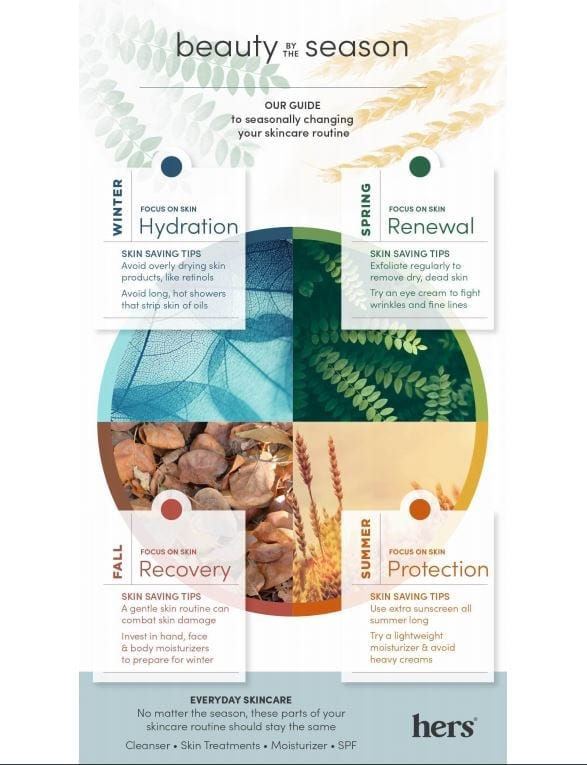Summer is finally upon us and with it comes a wave of hot weather, clear skies, and of course, bright, sunny days! And while most of us will use this as an excuse to spend our days at the beach or hosting barbecues, it’s important we stay mindful of the ways in which we expose our skin to the sun.
Regardless of whether you ‘re intentionally trying to sunbathe or not, tanning comes with many high-level health risks, which is why it’s essential to be cautious when spending time outdoors. Even if it’s only for a few minutes, ultraviolet (UV) rays are powerful enough to penetrate the skin and cause harm to your overall well-being. From developing signs of premature aging to heightening your risk of skin cancer, it’s no wonder why UV Awareness Month kickoffs at the start of July.
So, before you skip the sunscreen and layout in the blistering heat this summer, make sure to spend some time getting the skinny on sun exposure. If you’re unsure of where to begin, look no further. Here are four common tanning myths debunked:
Myth #1: Tanning Helps Clear Acne
Believe it or not, tanning does not actually work to clear up acne. Sure, sunbathing can temporarily dry out your skin, cover up the redness, and make your complexion appear less oily, but when it comes down to it there is no science behind this idea that suggests that sun-exposed skin helps to combat blemishes. Instead, various studies demonstrate the implications of UV radiation on the skin, allowing us to better understand how this tanning myth came to be.
When you spend time in direct sunlight— even for just a short while— your skin is susceptible to large amounts of UV radiation damage. When this happens, your skin naturally responds by shedding water and oil, creating the illusion of clear, healthy sun-kissed skin. Unfortunately, this simply isn’t the case.
Unlike the drying effect that comes from an acne treatment medication like tretinoin, the type of dryness that derives from UV radiation doesn’t specifically target acne-focused areas and is extremely damaging to the skin. With a tretinoin acne cream, dryness of the skin occurs as a result of a faster skin cell turnover cycle. On the other hand, the dryness that’s produced from excess sun exposure happens in response to the sebum (or oil) in your skin being zapped away. When this happens, your body tends to overcompensate for the lack of sebum by producing more oil. In turn, this causes your oil production to speed dramatically which therefore increases your likelihood of experiencing acne breakouts.
Myth #2: You Don’t Need Sunscreen on Cloudy Days
If you think that clouds act as a protective barrier for you when the suns out, think again. While clouds do work to shield the sun from beaming down, they are defenseless against UV radiation. In fact, the Skin Cancer Foundation reports that clouds block as little as 20% of UV rays, leaving you to deal with the 80% all by yourself.
Going unprotected may not seem hazardous at first, but besides developing a sunburn, sun-damaged skin can also lead to other serious health issues like melanoma or basal cell carcinoma— two types of skin cancer that occur from excessive amounts of sun exposure.
So even on the most dreary, cloudy day, you should be wearing sunscreen. Not only on your body, but also your face! Application of facial sunscreen should be the last step of your daytime skincare routine as this will act as an armor against the sun and its harmful UV rays.
Myth #3: Wearing Makeup or Moisturizer with SPF is Enough
This brings us to the next point. Even though the makeup you wear may claim to have SPF in the formula, that doesn’t mean that you can skip over the sunscreen step in your morning skincare routine. This is because sunscreen has an entirely different purpose compared to makeup and moisturizers as it’s designed to protect the skin, not penetrate it like other cosmetics.
In an interview with Byrdie, skincare expert, Ulli Haslacher, further explained the significance of using sunscreen as opposed to other SPF beauty products. She said:
“Most importantly, when exposed to air and light, sunscreen becomes ineffective after a short period of time (about 90 minutes max). You need to reapply it if your skin is exposed to the sun. It just not an ingredient to be added to a moisturizer—it is its own layer, and the consumer needs to be better educated about it.”
Plus, sunscreen is regulated as an FDA drug, meaning it’s required under regulations to have a specific amount of SPF within in order for it to be considered effective. That being said, there is basically no room for other active ingredients to be included within the formula. Thus proving that makeup and moisturizer with SPF is not nearly as beneficial in keeping your skin protected when compared to sunscreen.
Myth #4: Base Tans Help Protect Against Sun Damage
If you have fair skin, you’ve probably worked to achieve a base tan before heading off on vacation in an effort to prep your skin for the additional sun exposure it’s going to endure. Sorry to tell you, but the base tan you build isn’t going to stop you from getting a sunburn.
Contrary to popular belief, tanned skin isn’t a sign of good health, but rather, an indicator of damaged skin cells. When the skin darkens, it’s redistributing melanin—the natural pigment of your skin tone— in an attempt to protect itself. As it continues to be exposed to the sun, the negative impacts start to become more severe and irreversible. Besides darkening the skin, constant tanning will cause the skin to thicken and appear more leathery. Along with that, it can also prompt DNA damage which may ultimately lead to skin cancer and other health-related concerns.
So regardless of how pale your complexion is, no amount of tanning will ever serve as a preventative measure against sun-damage. Your best bet in preserving the state of your skin is to stick with the sunblock and refer to self-tanner. Self-tanner is easy to use and allows you that achieve that desired sun-kissed look, without having to jeopardize your skin’s health.
Protect Your Skin
In summary, tanning—whether it occurs indoor or outdoor— comes with many health risks, and it’s critical to your well-being that you educate yourself on them. Use this information to adequately care for your skin all summer long. To learn more about seasonal skincare tips for summer and beyond, check out this infographic from Hers!












